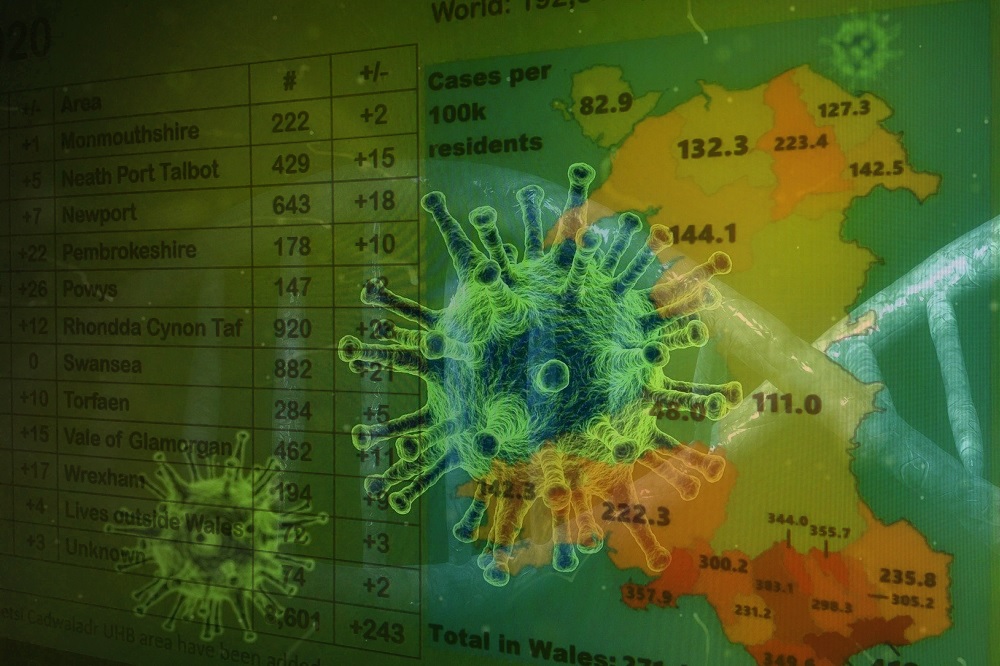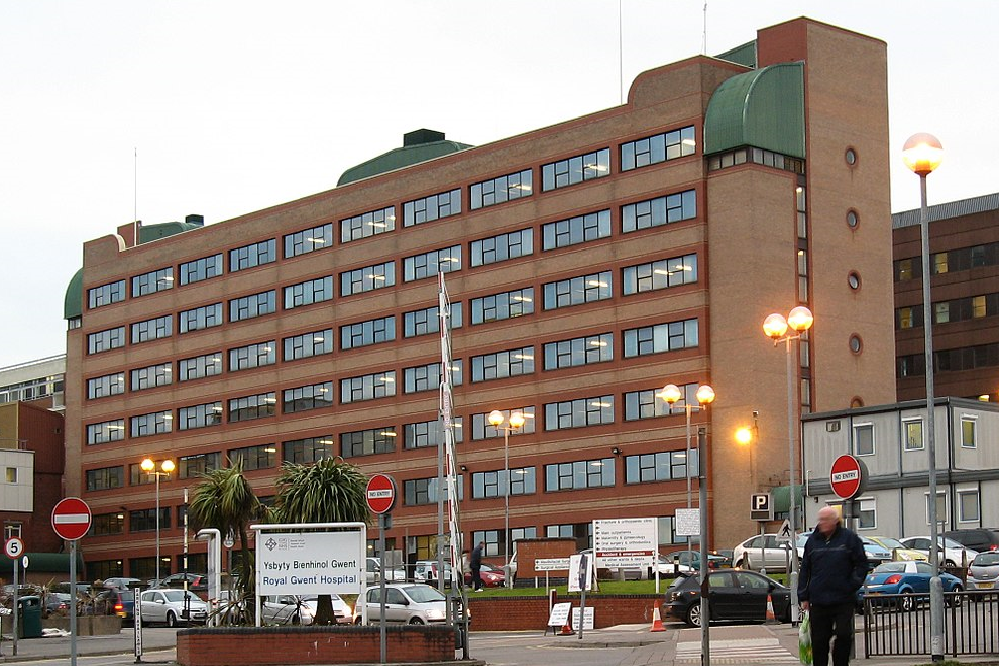Senedd roundup: Price calls for ‘leadership not letters’ as travel row rumbles on

Owen Donovan, Senedd Home
Plaid Cymru leader Adam Price has criticised First Minister Mark Drakeford for failing to take action to ban travel from areas of high Covid-19 rates in England to other parts of the UK and Wales.
Yesterday Prime Minister Boris Johnson rejected the request from Mr Drakeford for action from the UK Government to curtail travel into Wales but today the First Minister has written to him requesting that he reconsiders his decision.
In the letter Mr Drakeford said efforts to control the spread of Covid-19 are being “undermined” by the movement of travellers from elsewhere in the UK, and said that the voluntary guidance approach followed by the UK Government had proved “ineffective” and “firmer action” was urgently required to keep the virus under control.
“I have been clear throughout that this is not a matter of the border between Wales and England,” he added.
“This is a matter of preventing the circulation of the virus from areas of high prevalence to low-prevalence wherever they may be.
“If you fail to introduce the sort of measures we have already introduced in Wales, it will make this an issue which will undermine rather than support the successful operation of the border region.”
Dismissing the latest attempt to prompt the UK Government to take action, Mr Price said, “Wales needs leadership not letters” and again called for the First Minister to use the powers at his disposal to implement travel restrictions across the border.
“This is the fourth week running that I have highlighted the absurdity of people in areas of high Covid-19 rates in England and other parts of the UK being allowed to travel into parts of Wales.
“Rather than respond to the legitimate concerns of our rural communities, instead the First Minister, rather bafflingly, sought it fit to suggest this was being portrayed as some “contest between Wales and England,” he said.
“This is about public health and protecting our communities. The First Minister knows that. Rather than writing another unanswered letter to Westminster, the First Minister should act independently in the interests of the people of Wales.
“A pandemic calls for quick and decisive action by Government. We can’t really afford to wait another day let alone another week. Wales needs leadership – not more letters.

Community-level Covid-19 data “too volatile to be completely reliable”
First Minister’s Questions
With increase talk about a potential national lockdown on the horizon, Leader of the Opposition, Paul Davies MS (Con, Preseli Pembs.) suggested this meant the Welsh Government’s lockdown approach had been a failure.
When the First Minister countered that it was no more a failure than the three-tier system in England, there was a largely pointless discussion about whether Wales or England was failing the most. Then it moved to a question of substance on the publication of council ward-level data on virus cases.
“….some counties have chosen to publish community data themselves….and that transparency is crucial. It’s only fair that everyone in Wales should have access to data about their local community. So, First Minister, will you now commit to leading on this by publishing data on a community basis….so that the people of Wales can be confident that current lockdown measures are proportionate to the threat of the virus in their own areas?”
– Leader of the Opposition, Paul Davies
The First Minister agreed that the publication of ward-level (and lower) data has been “a very useful guide”. The Welsh Government publishes lots of data every day on Covid-19, but he didn’t want to publish any data “that is so volatile that it’s impossible to draw sensible and reliable conclusions from it”.
Arguments in favour of a national lockdown “being taken seriously”
Focusing on the reasons why scientific advice favouring a “circuit breaker” lockdown (effectively a two-week lockdown similar to that in March/April) has seemingly been ignored, Adam Price MS (Plaid, Carms. E. & Dinefwr) repeated what UK Labour figures have said about the urgent need for national action to stem the second wave of Covid-19.
That includes restricting travel into Wales from areas in England with high numbers of cases.
The First Minister was unequivocal that if the number of cases of the virus and hospitalisations increases at the current rate then new measures would be needed, including the possibility of a “circuit breaker” lockdown.
“I take the arguments in favour of a ‘circuit-breaker’ period seriously, and in the COBRA meeting yesterday, I asked the Prime Minister for an extra-special COBRA meeting specifically to discuss the circuit-breaker idea. I think that it’s an idea that will need further examination and needs to be shared in perspectives between the four UK nations.”
– First Minister, Mark Drakeford (Lab, Cardiff West)
Taking exception somewhat with how Adam Price portrayed travel as an England-Wales issue, the First Minister said it would be right for everyone in the UK to be subject to travel restrictions to and from areas with high numbers of cases.

Covid deaths double as second wave gathers pace
Latest figures from the Office for National Statistics have confirmed that deaths due to coronavirus have doubled in Wales over the last week
According to the ONS there were 25 deaths involving Covid-19 in the week ending 2 October, compared to 12 the previous week.
This total includes 10 deaths in Rhondda Cynon Taf where an outbreak at the Royal Glamorgan Hospital has led to 25 deaths up to last Thursday.
For the week ending 2 October, RCT recorded the fifth highest number of registered deaths involving Covid-19 for any area across Wales and England.
Since the start of the pandemic in late February there have been 321 deaths in RCT overall, a death rates of 133.6 deaths per 100,000 people, putting the area into the 20 hardest hit across England and Wales.
The ONS figures tend to be higher that the daily totals published by Public Health Wales as they include deaths in hospital, care homes, people’s homes, hospices and other communal establishments. They also count deaths where Covid-19 is mentioned on the death certificate.
PHW only reports deaths where there has been a positive laboratory test and mostly involves deaths in Hospital. The total number of deaths reported by the ONS in Wales is 2,612 while today’s total from PHW is 1,678.
764 new cases of Covid-19 have been reported by Public Health Wales in the last 24 hours.
There have also been 5 further deaths due to the virus.
Cardiff again recorded the highest number of new cases in Wales with 110. Rhondda Cynon Taf had the second highest with 100 confirmed positive tests for the virus since yesterday.
There were 15 new infections in Merthyr Tydfil, which has the highest infection rate in Wales at 207.2 cases per 100,000 of the population in the last week and also has the highest proportion of positive tests at 12.1 per 100,000. Wrexham recorded 48 cases yesterday and has the second highest infection rate at 181.7.

Unemployment rate jumps as pandemic takes its toll
Latest figures from the Office for National Statistics have confirmed Wales’ unemployment rate rose significantly between June and August as the economic impact of the coronavirus pandemic gathered pace.
The jobless total has increased by 15,000 from the previous quarter as the unemployment rate climbed to 3.8%. The number of people employed in the three months to August was also down 37,000 on the previous quarter.
According to the ONS figures the number of working age people deemed “economically inactive” has climbed by 36,000 to 24.4% in the last year, the second highest rate in the UK after Northern Ireland.
Overall, 57,000 people in Wales were unemployed in the quarter, 1,452,000 were in work and 466,000 were deemed economically inactive.
The unemployment rate across the UK has surged to 4.5%, its highest level in over three years and redundancies rose to their highest level since 2009.

Children’s mental health risks being “collateral damage” from Covid-19
In a follow-up report (pdf) to their 2018 inquiry into children’s mental health (Mind over Matter), the Senedd’s Children & Young People Committee noted progress in addressing mental health in schools but warned that the pandemic risks increasing mental health problems as a result to disruption to school life.
It comes as a Welsh Youth Parliament inquiry (pdf) revealed that 61% of young people experience mental health problems at least once a week. Only 20% of parents and carers surveyed thought mental health services at their children’s educational institution was “very good”.
Some children were said to be waiting up to a year to access treatment following referral.
Chair of the Children & Young People Committee, Lynne Neagle MS (Lab, Torfaen) said: “Our original report said we were not willing to allow this issue to be passed on yet again to a future Committee with repeated conclusions of ‘more work to be done’. We intend to keep our promise to the people of Wales and do everything we can to ensure that the Welsh Government puts our recommendations into practice.”
Emily Kaye MWYP (Llanelli) said: “Mental health can affect anyone, and it is absolutely critical that those who need the support and guidance, are given the proper resources and means to do so.”

Tenant loan scheme opens but faces criticism over debt burden
The Welsh Government has launched a scheme to provide private tenants with low-interest loans to enable them to avoid falling into rent arrears as a result of the Covid-19 pandemic.
The 1% APR interest loans will be paid directly to landlords or letting agents when private tenants in or facing rent arrears apply for one. The loans – overseen by the Wales Council for Voluntary Action – will be repaid over five years. The scheme will remain open until 31st March 2021.
Minister for Local Government & Housing, Julie James (Lab, Swansea West) said: “We are committed to ensuring no-one is made homeless as a result of the pandemic and this scheme is part of our long-term strategy to help people manage their debt, prevent homelessness and where (homelessness) cannot be prevented ensure it is rare, brief and non-recurrent.”
Delyth Jewell MS (Plaid, South Wales East) believed the scheme stands to benefit private landlords at the expense of tenants. She said: “Offering a loan to someone in rent arrears replaces one type of debt with another….In all cases, the recipient of the loan will have to pay interest on that loan, and for that reason, I would question whether this is really designed with the tenant in mind.”

Covid outbreak at Newport’s Royal Gwent Hospital
Newport’s Royal Gwent Hospital has introduced a no visiting policy after a coronavirus outbreak was declared by Aneurin Bevan University Health Board yesterday.
The board confirmed that 14 patients across three adult wards have been affected but no staff have tested positive and no affected patients have been admitted to intensive care.
The Royal Gwent is the fourth Welsh hospital dealing with an outbreak of the virus in recent weeks.
Cwm Taf Morgannwg University Health Board has already imposed extra measures following outbreaks at the Royal Glamorgan Hospital in Llantrisant, Prince Charles Hospital in Merthyr Tydfil and Bridgend’s Princess of Wales Hospital
Welsh Conservative health spokesperson, Andrew RT Davies MS, said: “There have been several outbreaks in Welsh hospitals of late and lessons must be learnt, with all infection prevention and control measures urgently reviewed to ensure we can best protect both patients and staff during the winter months.”

Councils to get powers to crack down on pavement parking
The Welsh Government is to give Local Authorities the power to fine people parking on pavements.
Ministers are making the move following the recommendations of an independent expert group to give councils additional civil enforcement powers to fine problem parkers.
“The current law is not as clear as it could be”, said Deputy Transport Minister, Lee Waters MS, who set up the taskforce.
“There is no specific offence of parking on pavements, and though the Police can enforce the existing criminal offence of causing ‘unnecessary obstruction of any part of the highway’, it is rarely enforced”, he added.
The Welsh Pavement Parking Taskforce rejected the outright ban being pursued in Scotland, which is set to take five years to implement, as overly slow and complex. Instead it has set out a plan to equip local authorities to act from July 2022. The UK Government has only recently begun to consult on a way to tackle the problem in England.
“We want more people to walk for short journeys and yet we tolerate an environment that is often not pedestrian friendly; too many routes are cluttered or blocked. A recent survey found that 83% of people in Wales view it as a real problem”. Mr Waters added.
“We recognise that in some streets there are too many cars for the space available and we don’t want to penalise people who have no alternative. This approach lets Councils target hot spots and vary its approach depending on local circumstances”.
All ten recommendations of the Welsh Pavement Parking Taskforce are being accepted by the Welsh Government. The independent panel was set up last summer under the leadership of respected transport engineer Phil Jones, who in parallel also chaired the taskforce on 20mph local speed limits. In July the Senedd backed proposals for a 20mph default speed limit in residential areas, which the Welsh Government intends to be in force by April 2023.
Support our Nation today
For the price of a cup of coffee a month you can help us create an independent, not-for-profit, national news service for the people of Wales, by the people of Wales.





